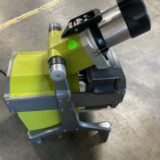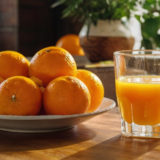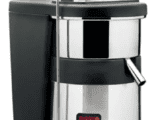Types Of Commercial Juicers: Pros and Cons
by Ryan
Picking the right commercial juicer can feel overwhelming. There are centrifugal machines, masticating juicers, cold press units, and each one promises something different. The truth is, no single juicer is perfect for every business.
What matters is knowing the pros and cons of each type so you can match the machine to your menu, your volume, and your budget. In this guide, we’ll break down the main types of commercial juicers, what they do best, and where they fall short, so you can make a smart choice for your kitchen.
Citrus Juicers
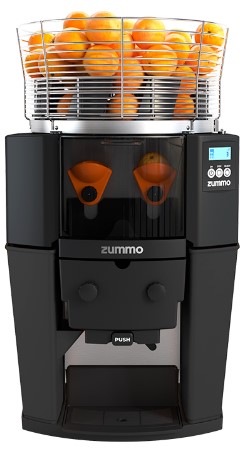
Topping off the list, we have citrus juicers. As you can probably guess from the name, these machines are made to juice citrus fruits.
Most of them can juice oranges, lemons, limes grapefruits and pomegranates. There are a few models that only do oranges though.
These machines are usually found in restaurants, hotels, catering and other locations. There are also some companies that use them for bottling juice as well.
These juicers come in all shapes and sizes. There are smaller ones that fit on a countertop and larger ones that can go on a countertop of on a cabinet with wheels and other accessories that make them more portable and saves counterspace.
There are also juicers made for lower juice demand situations that can juice about 6 fruits per minute all the way up to 40 per minute, depending on your needs.
Some machines are specifically designed to juice certain kinds of fruit, too. For example, the Zumex Speed S Pomegranate is calibrated to juice pomegranates which have tougher skins and fruit on the inside. This machine will also get more juice out of each pomegranate than a regular citrus juice machine.
There is also the Zummo LM that is calibrated to juice lemons and limes.
If you are looking to juice citrus fruits, then one of these juicers is the way to go.
Pros
- Ideal for citrus fruit
- Great for restaurants and catering
- Most machines can juice all forms of citrus fruits
Cons
- Can only juice citrus fruits
Related: Best Commercial Citrus Juicers For Restaurants and Juice Bars
Centrifugal Juicers
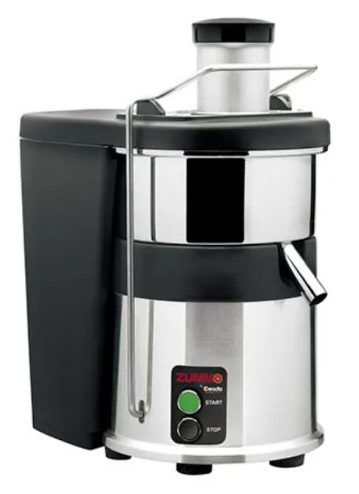
If your menu calls for apples, carrots, pears, cucumbers, or pretty much any other produce you can toss in, a centrifugal juicer might be exactly what you need. These machines get the job done by shredding fruits and veggies with a fast-spinning metal blade, then flinging the juice out through a mesh filter while the pulp is collected off to the side.
They’re compact, simple to run, and they don’t take up much space on the counter. For restaurants and juice bars that want to add fresh juice without going all in on a cold press setup, a centrifugal juicer is often the go-to. The tradeoff is speed and volume. They’re solid for moderate use but not built to keep up with nonstop, high-demand juicing.
The upside? They’re the most affordable type of commercial juicer out there. That makes them a smart choice if you’re just starting out, testing the waters, or running a spot where juice is an add-on rather than the main attraction.
Pros
- Less expensive
- Can juice a variety of fruits and vegetables
- Smaller footprint
- Easy to operate
Cons
- Citrus fruits must be peeled to be juiced
- Can’t do a large volume of juice
- Juice from a centrifugal juicer doesn’t store well
Related: Best Vegetable Juicers For Restaurants
Cold Press Machines
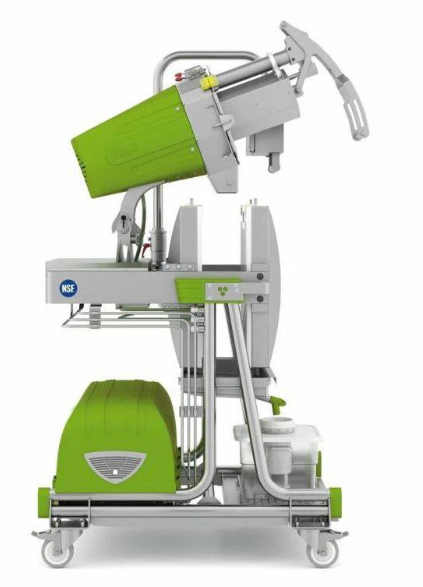
Cold press machines are sometimes referred to as masticating juicers. They are similar but not exactly the same.
A cold press is a simple and effective way to juice all forms of fruits and vegetables.
The cold press works by putting shredded fruits and vegetables into a bag and then smooshing the bag with a hydraulic press a few times to get all of the juice out.
This method delivers a high yield and gives you a wide variety of options for juice. Cold presses come in many different sizes, from countertop presses that can juice 5-10 gallons an hour to industrial presses that can juice 2000 gallons per hour.
These are great machines, but the big negative of these is that they can get pretty expensive.
Pros
- Can juice all forms of fruits and vegetables
- Has a high-yield
- It can come in countertop sizes up to industrial.
Cons
- Higher price tag
Manual Juicers
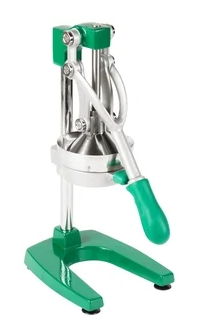
If you’re just starting out and don’t have the budget for a full commercial machine, a manual juicer can still get the job done. Most of these are built for citrus, so you’ll be limited to oranges, lemons, limes, and grapefruits—but for a small setup, that might be all you need.
They’re slower and, of course, powered by elbow grease. If business picks up and you’ve got a line of customers waiting, you’ll feel the extra work pretty quickly. Still, the price is tough to beat. You can find basic models for as little as ten bucks, with sturdier versions climbing closer to five hundred.
For newcomers or anyone only doing light juicing, a manual press is a simple, affordable way to get started without sinking a big investment up front.
Pros
- Less expensive
- Can juice all forms of citrus fruit
Cons
- Only for low-volume
- Not good for fruits other than citrus
Wrap Up
There you have the 4 types of juicers for a commercial setting.
Which is best for you? That really depends on your needs, what types of fruits and vegetables you are looking to juice, and, of course, your budget.
If you have a higher demand but don’t want something better than a manual juicer, then a high-quality refurbished juicer is a consideration. They are usually about half the price of new juicers, so that can save you some good money and everyone like that.


